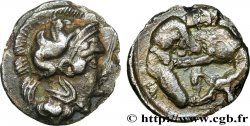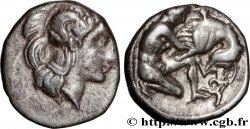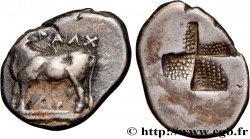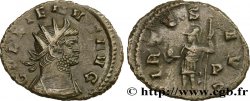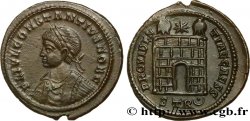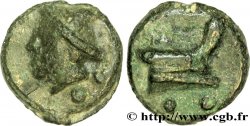v45_0004 - CALABRIA - TARAS Diobole
MONNAIES 45 (2010)
Starting price : 280.00 €
Estimate : 450.00 €
Realised price : 307.00 €
Number of bids : 4
Maximum bid : 307.00 €
Starting price : 280.00 €
Estimate : 450.00 €
Realised price : 307.00 €
Number of bids : 4
Maximum bid : 307.00 €
Type : Diobole
Date: c. 350 AC.
Mint name / Town : Calabre, Tarente
Metal : silver
Diameter : 11 mm
Orientation dies : 10 h.
Weight : 1,02 g.
Rarity : R2
Coments on the condition:
Exemplaire sur un flan large, bombé et irrégulier, bien centré des deux côtés. Très beau portrait d’Athéna de hautr relief. Joli revers de style fin où les détails sont bien visibles. Très belle patine de collection ancienne
Catalogue references :
Predigree :
Cet exemplaire provient de la collection A. S.
Obverse
Obverse legend : ANÉPIGRAPHE.
Obverse description : Tête d'Athéna à gauche, coiffée du casque attique à cimier, orné d’un hippocampe.
Reverse
Reverse legend : ANÉPIGRAPHE.
Reverse description : Héraklès agenouillé à droite, appuyé sur sa massue, étranglant le lion de Némée.
Commentary
Poids léger. Malgré la rareté du type, nous n’avons pas relevé d’identité de coin pertinente. Notre exemplaire est très proche de celui de la collection M. P. Vlasto décrit par Oscar Ravel (V. 1260, pl. XXXVIII) provenant de la trouvaille de Carosino (IGCH. 1928) trouvé en 1905 à 15 kilomètres de Tarente et qui contenait plus de 230 monnaies d’argent dont 16 dioboles de Tarente, enfoui vers 334-330 avant J.-C.
Light weight. Despite the rarity of the type, we have not found any relevant die identity. Our example is very close to that of the MP Vlasto collection described by Oscar Ravel (V. 1260, pl. XXXVIII) coming from the Carosino find (IGCH. 1928) found in 1905 15 kilometers from Tarentum and which contained more than 230 silver coins including 16 dioboles from Tarentum, buried around 334-330 BC
Light weight. Despite the rarity of the type, we have not found any relevant die identity. Our example is very close to that of the MP Vlasto collection described by Oscar Ravel (V. 1260, pl. XXXVIII) coming from the Carosino find (IGCH. 1928) found in 1905 15 kilometers from Tarentum and which contained more than 230 silver coins including 16 dioboles from Tarentum, buried around 334-330 BC







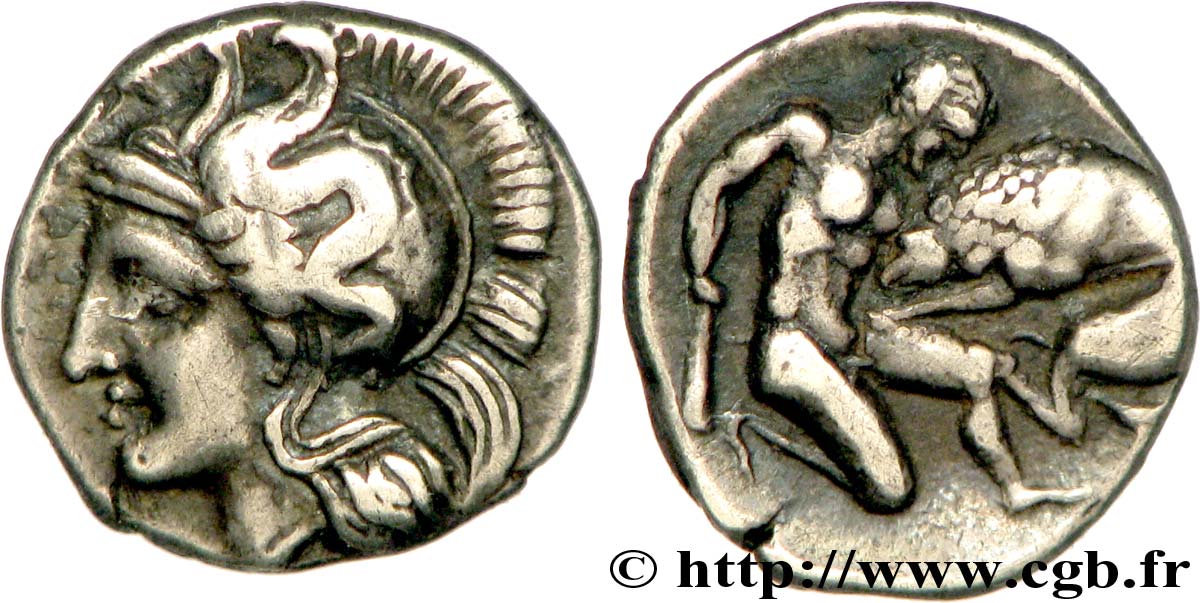
 Report a mistake
Report a mistake Print the page
Print the page Share my selection
Share my selection Ask a question
Ask a question Consign / sell
Consign / sell
 Full data
Full data

